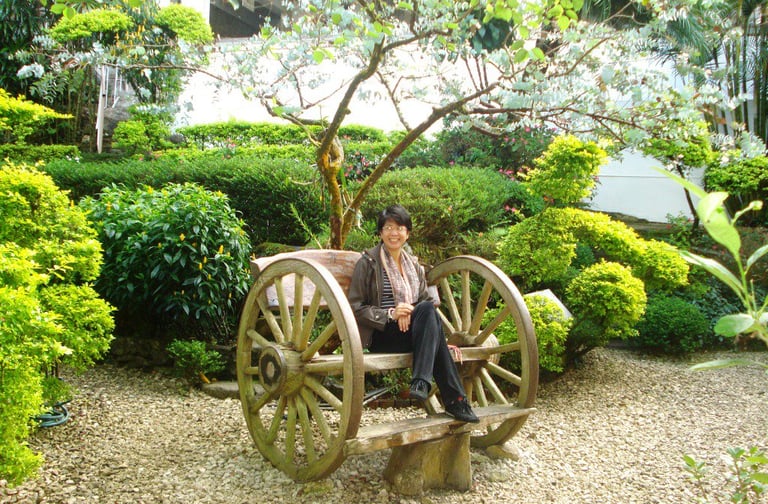The Challenge of the Long Form (and the Voice That Insists on Being Heard)
WRITING AT WORDHOUSERESOUND


Why I Still Write in Long Form Despite Short Attention Spans
I used to write by hand, and my handwriting was decent enough. Ideas often ran faster than my hand could keep up, but that was part of the delight. In handwriting, I sometimes lost the self-consciousness that comes with overthinking every word. It wasn’t automatic to polish my phrases, check my style, or scrutinize every fact. I simply wrote, aiming for careful expression even when I couldn’t find the exact words. Handwriting felt forgiving. When I returned to a page, I could see where I hesitated or changed my mind, and every overwrite revealed the transparency of my own struggle to say what I meant.
Today, I seem to scroll as fast as I breathe. Writing feels less encumbered now, although still painstaking. Each strike I make on my keyboard is a real-time search for how best to sound out my truest voice through endless edits and revisions. Yet in the repetition and erasure, something of the organic nature of thought disappears, vanishing as quickly as it forms, buried in the gaps between keys.
This problem gets more complicated when I write longer blogs and journals. In sharing my most private reflections through the sterile encoding of letters, I find myself lingering more on the craft of language than on the act of reflection itself. I take my time, yes, but self-exploration on the page often turns technical, almost like an obligation rather than expression.
The Long Form Values Deeper Thoughts
As I write the long-form essay, I find myself reclaiming time, ironic, because writing this way takes time. Yet writing is thinking, and the longer I linger on the page, the more deliberate that thinking becomes. When I imagine WordHouse as a community that values careful, deliberate writing over clicks and reach, I know it may sound out of step; after all, algorithms rule attention now.
But long-form writing asks for a different kind of attention, the kind that draws one into the slow work of observation, until it becomes fully part of the story being told. Recently, I’ve gone back to reread my blogs, asking myself: Do they hold up? Do they make the reader pause and think, or do they dissolve into their own wordiness? How sharp, how curious, how alive are they? And most of all, how do they reclaim time?
Your Turn to Write a Long Form Reflection
On Facebook, I sometimes come across posts or status updates that draw me in because they demand thought. Their sentences move like conversation: curious, uncertain, unembarrassed by not knowing it all. They are urgent and honest, pulsing with real life.
Despite their length, I keep reading, because what’s happening on the page feels important, something I can’t afford to miss. When a writer shares vulnerable truths about themselves, I become alert to their person. I admire how they write to be seen, not as performers reaching beyond themselves, but as that mysterious other, revealing a fragment of who they are.
How about you slow down and write a long-form essay, one that lets a reader wander and wonder? Perhaps there’s a subject that’s been lingering in your mind: a memory you can’t shake, a question that won’t leave you alone, an idea that keeps pestering you. Write past the short captioned summary, beyond the safe abstractions. Let your doubts breach the page. Let your genuine self take up space.
And when you’re done with your long-form piece, read it aloud and ask yourself: Did I say something true, something faithful to what I was thinking in that creative time of reflection?
Then post it here, and let us see where your meandering takes us, your readers, on this slow, thoughtful ride through your words.
How A Personal Voice Resonates
When I write a long-form essay, I feel a kind of freedom, but not without temptation. I might get enamored with language and experiment with style. If I allow myself too much space, I can lose focus in the acrobatics of words and end up saying nothing at all. My real challenge is not in filling the page, but in ensuring that the length makes room for honesty and for courage.
One doesn’t need many words to say something that matters. In writing, the challenge is often an existential one. If I have nothing to say, the act itself becomes ego-tripping or writing for the sake of hearing my own voice. My voice can insist that you listen, but that insistence comes from two places: first, a genuine desire to connect; second, a quiet hunger for attention. Online, we often post to share, but sometimes, if we’re honest, we post simply to remind ourselves that we exist.
Long-form writing gives room for doubt. Memories arrive in fragments rather than in unity or closure, and so the long piece becomes an open room, a place where I, as the writer, and you, as the reader, can sit together for a while, converse, and grow familiar. I hope that on the page, you will not hear mere noise, but truly meet me there. I covet your trust. The long form, at its best, makes sure our time connecting is worth it.




I write the long-form because it allows me ample pauses for moments to see if what I’m saying might resonate.
When I resist brevity in favor of meandering, I take my time, to think as much as I write, to let my voice resound rather than simply watch myself appear on the page.
Most creative writing begins in confusion or desire, a restless need to make sense of something that refuses to leave us alone.


